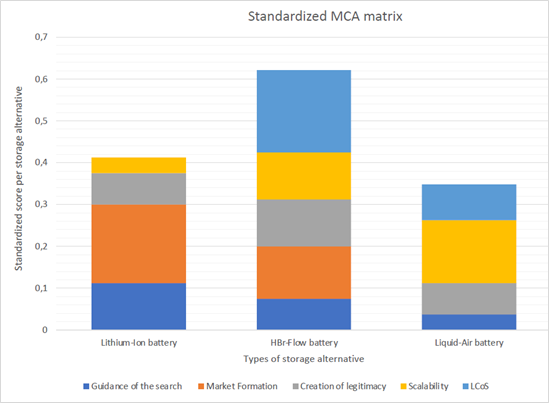Five enthusiastic students from the Bachelor’s program in Natural Science and Innovation Management at Utrecht University, in collaboration with Pondera, have attempted to answer the question of which energy storage techniques can offer opportunities for Dutch wind projects.
Energy storage is a hot topic these days and is widely regarded as one of the pillars for an energy system that runs entirely on renewable resources. Although there are several energy projects that already use storage techniques, it is currently not common to add energy storage to sustainable energy projects.
The students selected three battery storage techniques from all available techniques and compared them with each other via a multi-criteria analysis. This means that they gave each technique a score for various factors, for example, technology (scalability), cost-benefits (Levelised cost of Storage, or ‘LCoS’) and market conditions (including legislation, subsidies, knowledge through research and barriers).
The analysis shows that the HBr-Flow battery generally scored well (see figure below). This is mainly because hydrogen and bromine are relatively cheap elements, which means that the LCoS is lower. After the HBr-Flow battery was the lithium-ion battery, the most well-known storage technique. The relatively high cost of lithium and the limited scalability are points of attentionfor this technique. The Liquid-air battery scored well in terms of scalability, but overall, this technique came in third.

The students emphasised that the results should to be viewed from a global systems perspective. The most suitable application of energy storage ultimately differs greatly per project. For example, the lithium-ion battery is suitable for a rapid discharge in a short time, and the liquid-air battery offers potential when a large capacity is required (+100 MW).
If you have any questions about this research or if you looking for more information about the options for energy storage in a specific wind project, please get in touch with one of our advisors.
Finally, Pondera would like to thank the students for their commitment and enthusiasm during the research and wish them every success in the continuation of their education!










